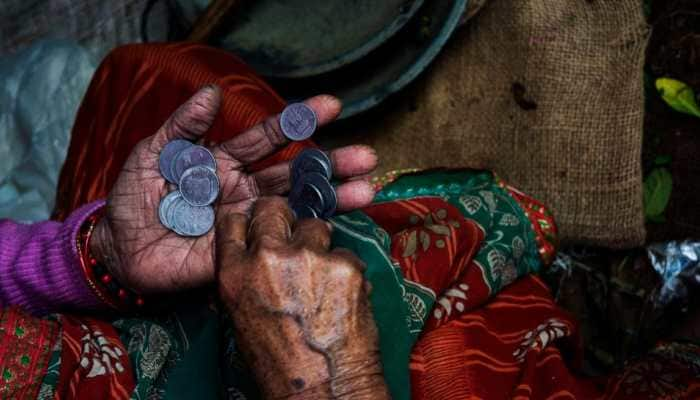Hijab ban: ‘Expected a BETTER VERDICT,’ says Karnataka minister, cites global protests against hijab
Karnataka hijab ban verdict: The Karnataka govt has welcomed the split ruling by the Supreme Court in the hijab ban case but it also said that it expecetd a better verdict in the matter since women across the globe re now protesting against hijab
- The Karnataka govt has welcomed the SC verdict in the hijab ban case
- The SC today delivered a split verdict in the case
- It also referred the matter to the CJI for necessary action
Trending Photos
)
New Delhi: The Karnataka government on Thursday said that it had “expected a better judgement” after the Supreme Court delivered a split verdict on the hijab ban in the state and referred the matter to the Chief Justice of India for appropriate direction in this regard. “We welcome the Supreme Court verdict. We had expected a better judgement as women worldwide are demanding to not wear hijab/burqa. Karnataka HC order remains applicable in interim time; the ban on wearing of hijab in educational institutions of the state remains,” Karnataka Minister BC Nagesh said.
We welcome Supreme Court verdict. We had expected a better judgement as women worldwide are demanding to not wear hijab/burqa. Karnataka HC order remains applicable in interim time; ban on wearing of hijab in educational institutions of the state remains: Karnataka min BC Nagesh pic.twitter.com/X84q78FlFc — ANI (@ANI) October 13, 2022
When quizzed about the organisations supporting hijab in educational institutions, Nagesh said, “They will always want to split this society. They are using hijab to split the society.”
The remarks from the Karnataka government came minutes after the Supreme Court delivered a split verdict on a clutch of petitions challenging the Karnataka government`s February 5 order, prohibiting the wearing of hijab inside classrooms in pre-university colleges. The judgment was delivered by a bench comprising Justices Hemant Gupta and Sudhanshu Dhulia.
Justice Gupta upheld the Karnataka government circular and dismissed the appeals against the Karnataka High Court judgment. However, Justice Dhulia allowed all the appeals and set aside the judgment of the Karnataka High Court.
Justice Dhulia said the main thrust of his judgment was that the entire concept of essential religious practice was not essential to the dispute and the high court took a wrong path. "It (wearing of hijab) is a matter of choice, nothing more and nothing less," said justice Dhulia. He added that he has quashed the government order of February 5 and has ordered the removal of the restrictions.
Justice Dhulia said what weighed on his mind the most is "whether we are making a girl student`s life better by putting such restrictions when her education is concerned". Justice Gupta said that "in view of divergent opinions, let the matter be placed before the CJI for appropriate directions".
After 10 days of marathon hearings, on September 22 the top court reserved the judgment for Thursday. The bench heard the arguments from the counsels representing the state government, teachers, and the petitioners, who moved the apex court challenging the Karnataka High Court verdict refusing to lift the ban on hijab in educational institutions of the state.
A bench of Karnataka High Court comprising Chief Justice Ritu Raj Awasthi, Justice Krishna S Dixit, and Justice JM Khazi had earlier held that the prescription of uniform is a reasonable restriction that students could not object to and dismissed various petitions challenging a ban on Hijab in education institutions saying they are without merit.
The Hijab row erupted in January this year when the Government PU College in Udupi allegedly barred six girls wearing the hijab from entering. Following this, the girls sat in protest outside the college over being denied entry.
After this, boys from several colleges in Udupi started attending classes wearing saffron scarves. This protest spread to other parts of the state as well leading to protests and agitations in several places in Karnataka. As a result, the Karnataka government said that all students must adhere to the uniform and banned both hijab and saffron scarves till an expert committee decided on the issue.
On February 5, the pre-University education board released a circular stating that the students could only wear the uniform approved by the school administration and no other religious attire would be allowed in colleges.
Stay informed on all the latest news, real-time breaking news updates, and follow all the important headlines in india news and world News on Zee News.
Live Tv







)
)
)
)
)
)
)
)
)
)
